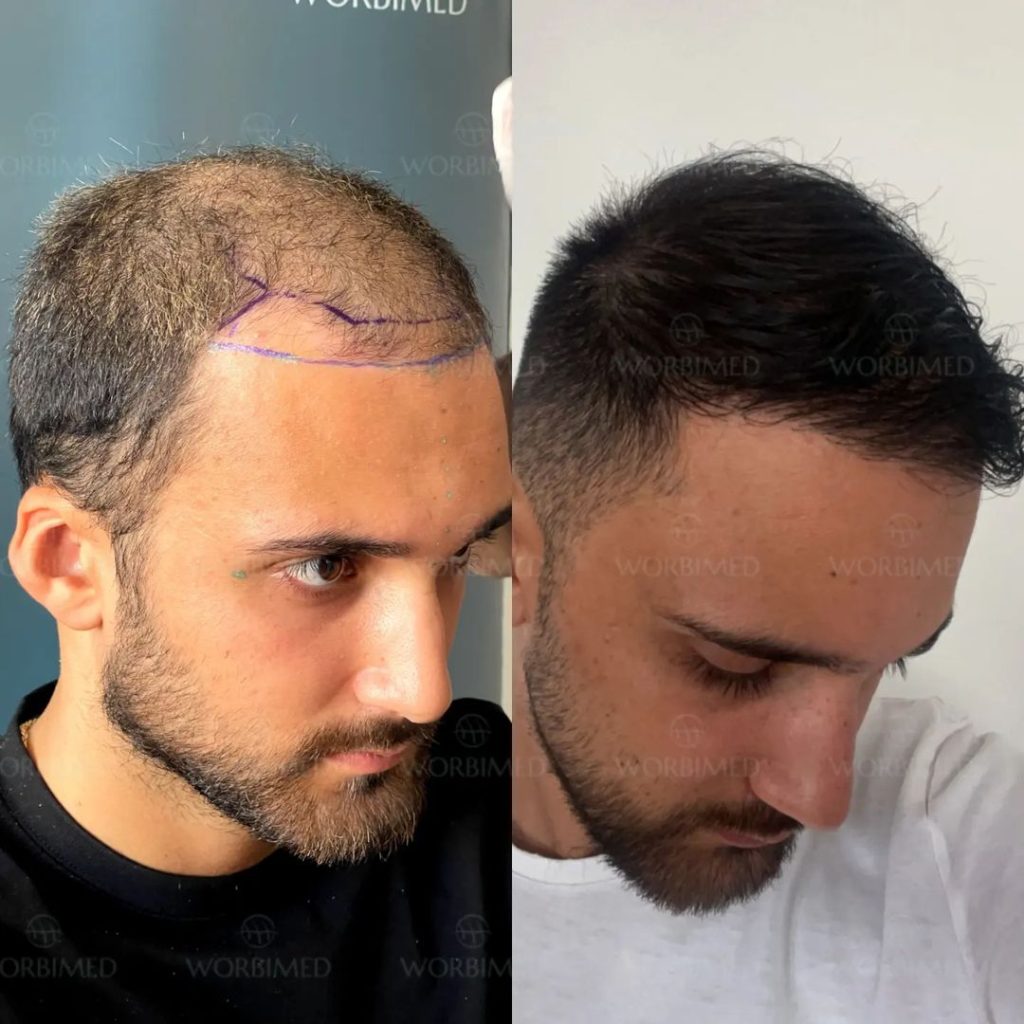Hair transplants are a surgical procedure designed to treat hair loss, a common problem affecting millions worldwide. The process involves harvesting healthy hair follicles from areas of the scalp where hair growth is still robust – typically the back or sides – and transplanting them to places where hair has thinned or ceased to grow. This procedure, performed by a qualified dermatologist or plastic surgeon, can help restore a fuller, more natural-looking head of hair. It is crucial to note that hair transplants do not create new hair; they merely relocate existing hair follicles. Therefore, the success of a hair transplant greatly depends on the overall health and density of the donor area.

The Popularity of Hair Transplants in Turkey
Turkey has emerged as a global hub for hair transplant procedures, earning the title ‘Global Capital of Hair Transplant’ due to its advanced techniques and affordability. The hair transplant in Turkey cost is surprisingly affordable, making it a popular destination for those seeking this procedure. The popularity of these procedures in Turkey can be attributed to several factors. Lower wages in this developing country contribute to the reduced cost of procedures, making it an attractive destination for ‘baldness tourism.’
Additionally, Turkey has made serious investments in the health sector, particularly in hair transplantation, housing some of the greatest hair transplant surgeons globally. Despite the presence of unlicensed surgeons offering black-market transplants, the industry thrives due to the minimal scarring and shorter recovery times associated with the procedures.
Factors Determining the Cost of Hair Transplants:

Quality and Experience of the Surgeon
The success of a hair transplant procedure greatly depends on the surgeon’s skill and experience. A highly qualified and experienced surgeon can command higher fees due to their expertise and track record of successful procedures.
In Turkey, medical universities offer specialized training in hair restoration, making them an excellent source of highly qualified surgeons. The Turkish Ministry of Health also closely regulates the industry, ensuring that only licensed and skilled surgeons are allowed to perform hair transplant procedures.
The Complexity and Extent of the Procedure

The complexity and extent of the hair transplant procedure can significantly influence its cost. The two main types of hair transplantation, follicular unit extraction (FUE) and follicular unit transplantation (FUT), differ in complexity and cost.
FUT is a more invasive procedure that involves removing a strip of skin from the donor area, while FUE involves extracting individual hair follicles from the donor area. FUE is a more intricate procedure; thus, it may be more expensive.
Additionally, the extent of the procedure also affects its cost. The number of grafts required depends on the patient’s degree of hair loss and desired density level. More extensive procedures with more grafts will naturally cost more than smaller procedures.
Type of Hair Transplant Techniques Used
The type of hair transplant technique used can also impact the overall cost. In addition to FUE and FUT, there are other methods, such as Direct Hair Implantation (DHI) and Percutaneous Hair Transplantation (PHT). These techniques may involve specialized equipment or tools, which can increase the cost of the procedure.
Aftercare and Additional Services
In Turkey, many clinics offer all-inclusive packages that cover the cost of the procedure, transportation, and accommodation. This can be a more cost-effective option for patients traveling from abroad.
Besides, aftercare services such as post-operative medications and follow-up appointments may also be included in these packages. These additional services can add to the overall cost but are essential for ensuring successful results and a smooth recovery.
Furthermore, some clinics may offer additional services such as platelet-rich plasma (PRP) or laser hair therapy to enhance hair transplant results.
Geographical Location and Travel Costs
The geographical location of the hair transplant clinic can also play a role in its cost. Clinics located in major cities or popular tourist destinations may have higher overhead costs, which can be reflected in their prices.
Moreover, travel costs such as flights and accommodations will add to the overall expense if you travel from another country for your procedure.
Insurance and Financing Options
Hair transplant procedures are typically considered cosmetic and elective, meaning they are not covered by insurance. However, some clinics may offer financing options or payment plans to make the cost more manageable.
Researching and comparing these options before committing to a clinic is essential. Some clinics may offer discounts or promotions for certain hair loss patterns or group packages.
Comparing Costs: Turkey vs. Other Countries
When comparing the costs of hair transplants across various countries, Turkey emerges as one of the most economical options. The average hair transplant cost in Turkey is approximately 3,000 euros, significantly less than that of the same procedure in the UK and the US. This affordability is primarily attributed to the lower incomes of hair transplant surgeons in Turkey and an economy supporting a lower-cost lifestyle.
Notably, Turkey’s cost per graft is also competitive internationally, with costs starting at 60 cents per hair graft. Despite the lower costs, the quality of hair transplants in Turkey is not compromised, making it a popular choice for those seeking this treatment.
Conclusion: Is a Hair Transplant in Turkey Worth It?
Deciding whether a hair transplant in Turkey is worth it comes down to a balance of cost-efficiency, quality of service, and patient satisfaction. The high level of expertise in Turkish clinics, combined with significantly lower costs compared to its Western counterparts, presents a compelling case for those seeking quality hair restoration procedures. Moreover, the added allure of recuperating in a country renowned for its rich culture and hospitality only enhances the overall value proposition. Patients are encouraged to meticulously review clinic credentials, patient testimonials, and aftercare support to ensure a decision that aligns with their financial considerations and expectations for a successful outcome.
